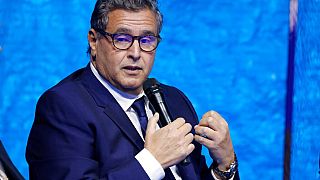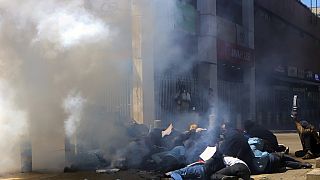Kenya
Fuel prices have risen once again in Kenya after the government partially removed subsidies that cushioned consumers from the global hike in oil prices.
The energy regulator said late on Wednesday night that it had removed the subsidy for super petrol while retaining a smaller subsidy for diesel and kerosene.
At the new prices, super petrol – mostly used by private motorists – will now cost about 179 shillings ($1.5) a litre, up from 1.3 dollars while diesel, which is used by transporters and industries will cost about 1.4 dollars in the capital, Nairobi.
Kerosene, which is mainly used by low-income households for cooking and lighting, will cost about 1.2 dollars a litre.
It comes after President William Ruto called fuel and food subsidies "costly and ineffective", in his inaugural speech, Tuesday.
Ruto said Sunday that Kenya was "in a deep economic hole" and repeated his pledge to lower the cost of living as a priority upon taking office.
The East African political and economic powerhouse is reeling from a once-in-a-generation drought and inflation is at five-year highs. In June, the World Bank projected Kenya’s (GDP) would grow by 5.5 percent in 2022, a moderation following last's year recovery when the country’s economy grew by 7.5 percent.











Go to video
Kenya set to surpass Ethiopia as East Africa’s largest economy in 2025 – IMF
Go to video
Eliud Kipchoge returns to the London Marathon
Go to video
Ties between China and Kenya "upgraded to a new level", say leaders during Ruto's state visit
Go to video
President Ruto signs $950M deal in China, strengthens Kenya–China ties
Go to video
Kenya: Ant smuggling suspects set to be sentenced on May 7
01:16
Africa mourns Pope Francis, a voice for peace and justice